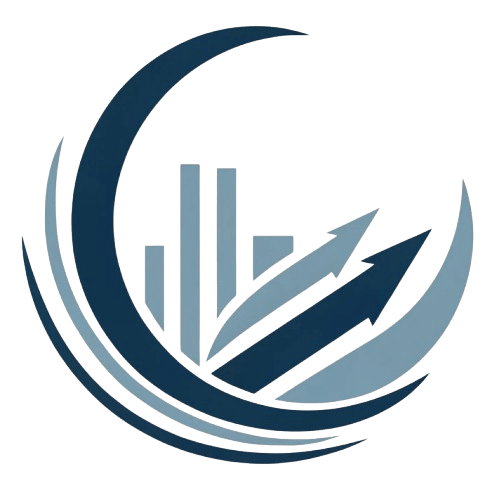Accredited Government Entity - AGE™
Official accreditation by BDA for government entities leading economic development
What is an Accredited Government Entity (AGE™)?
The Accredited Government Entity (AGE™) status, granted by the Business Development Association (BDA), recognizes government bodies that integrate business development and governance standards into their operations and developmental programs, aligned with the BDA BoCK™ framework. As an accredited entity, your organization will gain international recognition for its professional practices—enhancing its credibility and positioning it as a leader in economic support and business empowerment.
Benefits of AGE Accreditation
1) International Recognition
- Receive formal accreditation from a globally recognized body reflecting your commitment to institutional excellence.
2) Enhanced Government Reputation
- Demonstrate your adherence to transparency, good governance, and business environment enhancement.
3) Official Listing in the BDA Directory
- Your institution will be listed among accredited government entities in the BDA directory, with a dedicated profile page.
4) Use of the Accreditation Badge
- Obtain the official AGE accreditation badge to use in official reports and public awareness materials.
5) Opportunities for International Partnerships
- Unlock strategic collaboration with international organizations and public-private sectors through the BDA network.
Who Can Apply for AGE Accreditation?
The AGE accreditation is intended for government agencies and institutions working in the fields of business development, innovation management, or supporting institutional growth. Eligible candidates include:
- Government departments and agencies concerned with entrepreneurship or business development.
- Programs and initiatives to develop institutional competencies within ministries and official bodies.
- Specialized units within government institutions that provide training or consulting programs for business development.
To qualify, a government entity must demonstrate its commitment to implementing global best practices in accordance with the BDA BoCK™ standards, and demonstrate a clear ability to support skills development and strategic growth within the sectors it serves.
AGE Accreditation Assessment Process
1) Application Submission
- The government entity submits an application via the BDA website with required documents (institutional profile, policies and regulations, project reports, training plans, performance indicators).
2) Initial Review
- Documents are reviewed to verify basic eligibility, with time granted to address any missing information.
3) Comprehensive Evaluation Using BDAAT
The assessment includes five main pillars:
BDA BoCK™ Alignment (30%)
Policies & Projects (25%)
Internal Training & Capacity Building (20%)
Transparency & Institutional Governance (15%)
Continuous Development & Performance Improvement (10%) Minimum required: 75/100
4) Optional Site Visit
- A field visit may be arranged to assess service centers, training facilities, and the organizational environment.
5) Evaluation Report (BDAAT Report)
- Includes assessment results, observations, strengths, and recommendations. Entities are given one week to provide feedback.
6) Accreditation Decision
- Entities scoring 75% or above receive an official accreditation certificate and AGE badge. Those below may reapply after 3 months of improvement.
7) Annual Follow-Up
- Annual renewal is required with an institutional performance report and renewal fee.
Evaluation Model – BDAAT
The Business Development Accreditation Assessment Tool (BDAAT) is BDA’s official digital framework for evaluating government entities applying for AGE™ accreditation. It ensures a fair and transparent assessment that measures institutional performance and alignment with BDA BoCK™ standards.
Assessment Pillars:
1) Alignment with BDA BoCK™ (30%)
- Analyzing how BDA BoCK™ competencies are embedded in government strategies and policies (e.g., strategy, market analysis, SME empowerment).
2) Policies & Projects (25%)
- Evaluating the impact and relevance of public programs and initiatives related to business development.
3) Internal Training & Capacity Building (20%)
- Analyzing the quality of staff training and internal capacity-building initiatives.
4) Transparency & Institutional Governance (15%)
- Measuring adherence to transparency standards, presence of governance policies, and report clarity.
5) Continuing Development (10%)
- Assessing systems updates, data-driven improvements, and responsiveness to market challenges.
Evaluation Table
Criteria | Criteria | Indicators | Score % |
|---|---|---|---|
Alignment with BDA BoCK™ | 30% | Integration of BDA BoCK™ in strategies and policies | –
|
Policies & Government Projects | 25% | Project impact, effectiveness, support for business growth | –
|
Internal Training | 20% | Training quality, public sector capacity-building strategies | –
|
Ethics & Governance | 15% | Institutional governance, transparency, annual reports | – |
Continuous Improvement | 10% | System updates, improvement initiatives, response to change | – |
Total Score | 100% | Minimum required: 75/100 | – |
Sample Evaluation
A government entity integrates 85% of BDA BoCK™ competencies in its policies (26/30), runs impactful SME support programs (22/25), delivers strong internal training (18/20), follows transparent governance practices (13/15), and updates its strategies annually (9/10).
Total Score: 88/100 – Accreditation granted.
AGE Accreditation Fees
ACF accreditation fees are designed to cover all stages of evaluation and ongoing support.
Fee Type | Amount (EUR) |
|---|---|
Initial Accreditation Fee | €4,500
|
Annual Renewal Fee | €1,500 |
Included in the Fees:
Review of policies and documentation
Use of the BDAAT tool
Official Accreditation Certificate
Official accreditation badge
Listing in the BDA Government Entities Directory
Note: Annual performance reports and renewal payments are required to maintain active status.
Frequently Asked Questions
What is AGE Accreditation?
Accreditation for government entities that apply business development standards within their policies and programs.
Who is eligible?
Government bodies focused on economic development and private sector growth.
How long does the process take?
Typically 3–5 weeks after complete documentation is submitted.
Is accreditation permanent?
No, it must be renewed annually with performance reporting.
Does the accreditation cover all programs?
Only those aligned with BDA BoCK™ and included in the evaluation.
Other Accreditations

Accredited Academic Institution - AAI™
Official accreditation by BDA for leading academic institutions in business development

Accredited Consulting Firm - ACF™
Official accreditation by BDA for the leading consulting firms in business development

Accredited Government Entity - AGE™
Official accreditation by BDA for government entities driving economic development

Accredited Non-Profit Organization - ANPO™
Official accreditation by BDA for nonprofit organizations empowering communities and businesses


